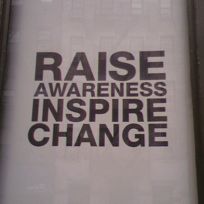Ariane’s Blog
A place to explore, embrace & make change happen
The Power of a Sincere Apology
Apologies happen—sometimes multiple times a day. We apologize when we unintentionally say something hurtful, when we make a mistake at work, or when we bump into somebody on the street. And then there are the bigger apologies—those we should have addressed months or years ago. Maybe we said something to alienate someone, perhaps we judged too quickly or did something we regret. Saying "I'm sorry" remains one of the hardest things to do. We justify our actions, we present half-apologies, we blame the one we’ve hurt, or we expect something in return. Yet a true apology can clear the air and potentially heal a relationship.
Align Head and Heart
It’s easy to say "I'm sorry," but meaning it is another story. A true apology occurs when the heart and head are in alignment, when you intellectually and emotionally accept the responsibility for causing another person pain, even if you’ve done it unintentionally. Becoming accountable for your actions is the foundation of an honest apology.
Write Before Speaking
If you are struggling to find the right words, write your apology down first. Writing gives you the space and time to see how you really feel—for instance, you'll discover whether you are truly sorry or whether you harbor any lingering hostility toward the person. It's important to deal with these feelings before approaching the one you've hurt, or you may reopen the conflict.
Don't Expect Anything in Return
A true apology is a selfless act. An apology is insincere when it is about wanting—forgiveness, attention—and not about giving. If you hurt a loved one with words or actions, take a moment to accept your role in what has happened and to imagine how you would feel if the same was done to you. At that point you can begin to make an apology that requires nothing from the one who is receiving it. Keep it simple. "I understand that I really hurt you and I want you to know that I am truly sorry."
For the complete post, please click here.










